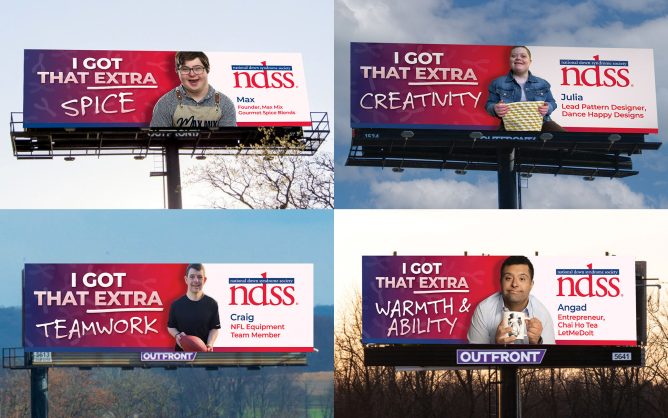With the growing awareness of mental health, accessing affordable counseling services remains a challenge for many individuals. This guide aims to help you navigate the various paths to finding an affordable counselor in 2024, ensuring you get the support you need without breaking the bank.
1. Exploring Community Resources
Local community centers often provide free or low-cost counseling services. These centers typically offer various mental health services, including individual therapy, group therapy, and workshops. Many community centers partner with licensed counselors and therapists who volunteer their time or offer services at a reduced rate. You can access affordable mental health care close to home by contacting your local community center.Community resources also extend to non-profit organizations that focus on mental health. These organizations often provide counseling services on a sliding scale based on income, ensuring that those who need help can access it regardless of their financial situation. Non-profits such as the National Alliance on Mental Illness (NAMI) and Mental Health America (MHA) offer directories and resources to help you find affordable care.
2. Utilizing University Counseling Services
Universities and colleges often have counseling centers that provide services to students, staff, and sometimes even the public. These services are usually offered by graduate students in psychology or counseling programs under the supervision of licensed professionals, ensuring quality care at a fraction of the cost.
If you’re a student, you might have access to free or very low-cost counseling services through your school’s health center. For non-students, some universities offer community clinics that provide affordable therapy. These clinics serve as training grounds for graduate students, who provide counseling under the guidance of experienced faculty members.
By seeking out university counseling services, you can benefit from high-quality, supervised care without the high price tag associated with private practice therapists.
3. Sliding Scale Payment Options
Many private practice therapists offer sliding scale payment options based on your income. This means that the fee you pay for each session is adjusted according to your financial situation. Sliding scale fees make therapy more accessible to those with limited budgets.To find therapists who offer sliding scale fees, you can start by checking directories such as Psychology Today, TherapyDen, or GoodTherapy. These platforms allow you to filter search results by therapists who offer sliding scale payments, making it easier to find affordable care.
4. Online Counseling Platforms
Online counseling platforms like BetterHelp and Talkspace have revolutionized the way people access mental health services. These platforms connect you with licensed therapists through video calls, phone calls, or messaging. They often offer subscription plans that are more affordable than traditional in-person therapy.
Online counseling can be particularly convenient if you have a busy schedule or live in a remote area. The flexibility to schedule sessions outside of typical office hours and the ability to communicate with your therapist via multiple channels can make therapy more accessible and less daunting.

5. Employee Assistance Programs (EAPs)
Many employers offer employee assistance programs that provide free or low-cost counseling services to employees. These programs typically cover a range of issues, including stress, anxiety, depression, and relationship problems. Check with your HR department to see if your company offers an EAP.
EAPs are designed to support employees’ mental health and well-being, often providing a limited number of sessions with a licensed counselor at no cost to the employee. If additional sessions are needed, the EAP counselor can help refer you to other affordable resources.
Taking advantage of your company’s EAP can be an excellent first step in addressing mental health concerns without incurring out-of-pocket expenses.
6. Low-Cost Clinics and Non-Profits
Several non-profit organizations and clinics provide affordable mental health services. These organizations often receive funding from government grants, donations, and other sources, allowing them to offer services at a lower cost. Research non-profits in your area to find available options.
Low-cost clinics, often referred to as community mental health centers, provide comprehensive mental health services, including individual therapy, group therapy, medication management, and crisis intervention. These centers typically serve individuals with limited financial resources and offer services on a sliding scale or even for free.
A report from NAMI provides an overview of how community mental health services have adapted to meet the growing demand for affordable care.
7. Pursuing an Affordable Counseling Degree
If you’re passionate about mental health and want to make a difference, consider pursuing an affordable counseling degree. The 2024 cheapest online counseling degree programs offer a great opportunity to gain the necessary skills and knowledge without accumulating massive debt. These programs are designed to be flexible and affordable, making them an excellent choice for aspiring counselors.
An affordable counseling degree can also be a long-term investment in your mental health journey. By becoming a counselor, you not only gain a deeper understanding of mental health issues but also contribute to making mental health services more accessible to others.
8. Support Groups and Peer Counseling
Support groups and peer counseling can be an excellent resource for those seeking emotional support and guidance. These groups often operate on a voluntary basis, making them a cost-effective option for those needing support. Peer counselors are typically trained to offer basic counseling services and provide a listening ear.Support groups can be found for a wide range of issues, including addiction, grief, anxiety, and depression. Many organizations, such as Alcoholics Anonymous (AA) and the Depression and Bipolar Support Alliance (DBSA), offer free support groups that provide a sense of community and shared understanding.

9. Telehealth Services
Telehealth services have expanded significantly, providing another avenue for affordable counseling. Many therapists now offer telehealth appointments, which can be more affordable due to reduced overhead costs. Additionally, telehealth can provide access to a broader range of therapists, including those who offer lower rates.
Telehealth services are particularly beneficial for individuals in rural or underserved areas, where access to in-person therapy may be limited. The convenience of attending therapy sessions from home can also reduce the time and cost associated with travel.
10. Government Assistance Programs
Some government programs provide financial assistance for mental health services. Medicaid often covers mental health services for eligible individuals. Check with your local health department or social services office to see if you qualify for any government assistance programs that can help cover the cost of counseling.
In addition to Medicaid, other government-funded programs like the Community Mental Health Services Block Grant (MHBG) and the Substance Abuse Prevention and Treatment Block Grant (SABG) provide funding to states for mental health services. These programs aim to improve access to mental health care for individuals with limited financial resources.
A study published by the American Psychological Association (APA) highlights the impact of government assistance programs on improving access to mental health services.
Conclusion: Taking the First Step
Finding an affordable counselor in 2024 may seem daunting, but numerous resources and options are available. You can access the support you need without straining your finances by exploring community resources, utilizing university services, considering sliding scale fees, and taking advantage of online platforms. Remember, taking the first step towards seeking help is the most essential part of your journey to better mental health.




